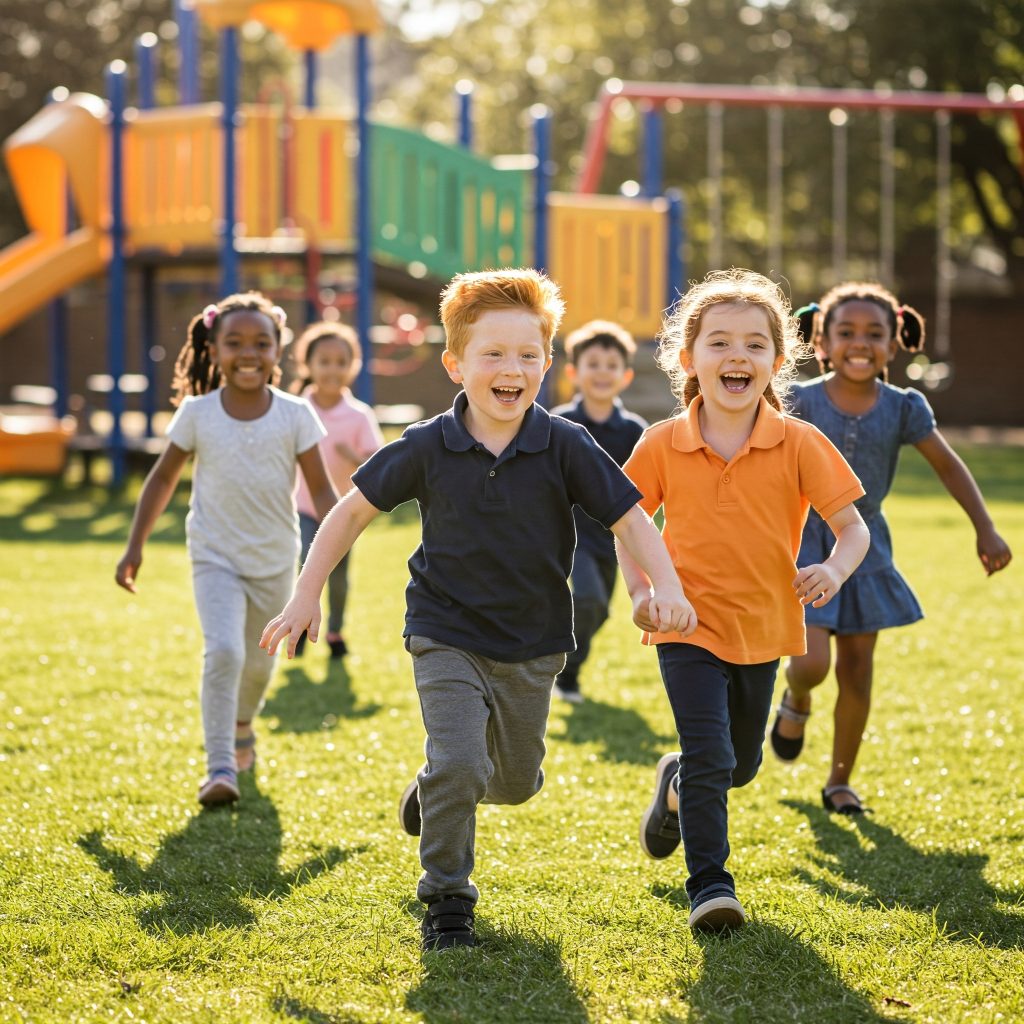The Importance of Play and Social Skills for School Readiness
Play, the most fundamental skill for childhood development!
Play skills are essential for ensuring your child/ren are ready for school by enabling the development of social, emotional, cognitive and physical capabilities. Play also provides children a safe space for creativity, to express their individuality and enables an understanding of the world around them.
Play skills are fundamental for developing interpersonal (social) skills essential for school readiness. Some of these social skills can include communication, collaboration, negotiation, empathy, understanding and sharing. Play skills facilitate children to navigate group dynamics, understanding conflict and building healthy and positive relationships throughout their life.
As mentioned in previous blogs, it is important to remember that all children develop individually and many personal and environmental factors contribute to a unique childhood development. Childhood development is about giving children the opportunities to experience, discuss and learn through doing – play and social skills are no exception!
How do I know if my child has appropriate play and social skills for going to school?
If your child is making progress towards developing these skills, it is a good indication they are on their way to being ready for school:
- Can separate from parent/carer
- Learning to share and take turns
- Engaging in:
- Pretend and imaginative play
- A play idea for 10+ minutes
- Games with rules
- Following play rules
- Plays with others
- Is flexible with play
- Sharing play ideas
- Following the ideas of others
- Negotiates with play rules
- Copes with losing
- Engages in a range of play types e.g. physical, sensory, constructive, imaginative, etc.
- Knowing and talking about their feelings
Please note: these are the skill areas for 4-6 year olds, if your child isn’t quite ticking all these boxes yet that is OKAY, there is plenty of time before big school begins to continue their development AND please keep reading, we have some helpful information to assist you!
Developing play and social skills:
So, if you are concerned that your child is not quite developing these skills or they are finding some a bit tricky, we have some ideas for you!
First, it is important to get an understanding of what foundational skills are a bit tricky for your child/ren in relation to play and social interactions:
- Higher order thinking skills – decision making, attention, planning and sequencing
- Body awareness – knowing where they’re body is within a space and how to move within an environment
- Problem solving – being able to:
- 1. Identifying the problem
- 2. Working out what to do to overcome the problem
- 3. Completing a strategy to overcome the problem
- Social skills – taking turns, sharing, verbal/non-verbal communication with others
- Understanding language skills – recognising and responding to communication from others
- Expressive language skills – communicating needs, wants, ideas
- Regulation – is your child/ren’s behaviour and emotions appropriate for the situation and environment
- Gross and fine motor skills – strength and coordination for the whole body and for the hand and fingers
Next, we implement strategies to work on what is tricky for your child/ren:
- Firstly, ensure your child/ren have the chance to develop the new or tricky skill by experiencing it, talking about it and most importantly, doing it. This can look different depending on the skill/s your child is looking to develop. For example it may be:
- One-on-one time between a parent/carer and a child to explore what the new skill is with a safe and supportive person in a familiar environment
- Having opportunities to explore and practice new play themes with peers
- Independently playing and working through aspects of development naturally, as they occur throughout the play sequences
- Adapt activities/tasks that focus on specific skill development. Again this can look very different for each family/child/skill area, but some examples include:
- An adult can model/encourage/script foundational skills for a child to develop – e.g. sharing – “it is you’re turn, than it is my turn, than its Fred’s turn”
- Structured play environments – e.g. play groups, play grounds, play dates
- Breaking down activities into smaller steps or building on play by creating more steps
- Breaking down emotions during play – being able to identify an emotion, understanding what it means and recognising them in ourselves and others
- Always remember – play should be fun.
There are so many more resources and activities ideas online if you search for them!
Here at CKH, our OTs and Physios have experience and love working with children to promote the ongoing development of their play and social skills. If this has brought up any concerns or you have any questions, please reach out to us!
Phone: (02) 6360 20 18
Email: [email protected]



